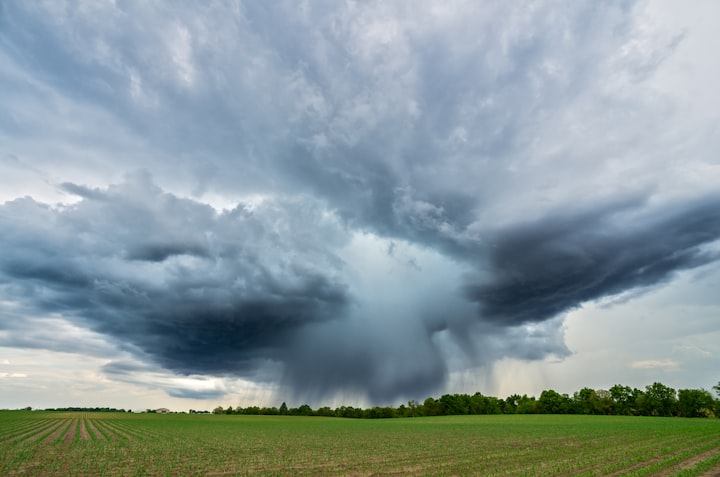Beyond the Surface
Unveiling the Consequences of Rising Global Temperatures on Marine Ecosystems
Chapter 1: A Colorful Realm Beneath
In the azure expanse of the ocean, hidden beneath the shimmering surface, lies a vibrant realm teeming with life. Countless species of fish, corals, and marine creatures coexist in harmony, creating an intricate web of biodiversity. This underwater paradise, however, faces an unprecedented threat - the consequences of rising global temperatures.
Chapter 2: A Warming Symphony
As the Earth's temperatures continue to climb, the ocean absorbs much of the excess heat, serving as a buffer against the more immediate effects of climate change on land. But this hidden resilience comes at a great cost to the marine ecosystems. The rising temperatures trigger a symphony of events, impacting every corner of this fragile habitat.
Chapter 3: Coral Catastrophe
Within the colorful coral reefs, an ecological catastrophe unfolds. Corals, the architects of these underwater cities, depend on a symbiotic relationship with microscopic algae called zooxanthellae. As the temperature rises, the corals expel the zooxanthellae, leading to a phenomenon known as coral bleaching. The once vibrant corals turn ghostly white, devoid of life and energy.
Chapter 4: A Delicate Balance Disturbed
Beyond the coral reefs, the rising temperatures disrupt the delicate balance of marine food webs. Tiny organisms like plankton, the foundation of the marine food chain, struggle to adapt. As the waters warm, their populations dwindle, affecting the survival of larger marine creatures like fish, turtles, and marine mammals. The disappearance of these vital species ripples through the entire ecosystem.
Chapter 5: A Silent Symphony
The consequences extend far beyond the visible. Beneath the waves, the cacophony of sound that once filled the ocean is dwindling. Increasing ocean acidification, caused by the absorption of carbon dioxide from the atmosphere, inhibits the growth of shelled organisms, such as mollusks and crustaceans. Without the familiar sound of their shells clattering, the ocean becomes eerily silent.
Chapter 6: The Vanishing Act
For migratory species like sea turtles and whales, rising temperatures create a labyrinth of challenges. As the ocean warms, the distribution of their prey shifts, forcing these majestic creatures to journey farther for sustenance. The effort required to find food weakens them, leaving them vulnerable to predators and disease. The once abundant sightings of these creatures become increasingly scarce.
Chapter 7: The Rising Tide
Rising sea levels, another consequence of global warming, invade coastal habitats, altering the delicate balance between land and sea. Mangrove forests, known as nurseries of the sea, face the brunt of this encroachment. These vital ecosystems provide shelter and breeding grounds for countless species. Their disappearance not only impacts marine life but also threatens the coastal communities that rely on these habitats for protection against storms and erosion.
Chapter 8: The Race Against Time
While the consequences are dire, there is still hope for the marine ecosystems. Scientists, conservationists, and communities around the world are uniting in a race against time. Efforts are underway to mitigate climate change, reduce greenhouse gas emissions, and establish marine protected areas to safeguard vulnerable habitats.
Chapter 9: Guardians of the Sea
Through research and advocacy, experts are raising awareness about the consequences of rising temperatures on marine ecosystems. They educate communities on sustainable fishing practices, promote the reduction of plastic waste, and encourage the adoption of renewable energy sources. These guardians of the sea inspire individuals to take action and become stewards of the environment.
Chapter 10: A Call to Action
The consequences of rising global temperatures on marine ecosystems serve as a wake up call for humanity. It is a reminder that our actions have far-reaching consequences, not only for the terrestrial world but also for the mysterious and awe-inspiring depths of the ocean.
Governments, industries, and individuals must join forces to address the root causes of rising global temperatures. The transition to renewable energy sources is imperative to reduce greenhouse gas emissions and curb the warming of our planet. Investments in clean technologies and sustainable practices can help alleviate the burden placed on marine ecosystems.
Furthermore, the preservation and restoration of vital habitats such as coral reefs and mangrove forests are essential. Collaborative efforts can promote the resilience of these ecosystems, allowing them to adapt and recover from the impacts of climate change. By establishing marine protected areas and enforcing sustainable fishing practices, we can protect vulnerable species and promote the recovery of marine populations.
Education and awareness play a crucial role in combating the consequences of rising temperatures on marine ecosystems. Through outreach programs, schools, and media, we can inspire the younger generation to become custodians of the ocean. By instilling a sense of wonder and reverence for marine life, we can cultivate a generation that values and protects our precious marine ecosystems.
International cooperation is vital in addressing the global nature of this challenge. The United Nations, along with various intergovernmental organizations and agreements, provides platforms for collaboration and sharing knowledge and best practices. By working together, nations can develop comprehensive strategies to mitigate the impacts of climate change on the world's oceans.
Individual actions also matter in the grand scheme of things. Each choice we make, from reducing our carbon footprint to making sustainable seafood choices, can contribute to the preservation of marine ecosystems. By advocating for policy changes, supporting conservation organizations, and reducing our reliance on single-use plastics, we can be part of the solution.
In conclusion, the consequences of rising global temperatures on marine ecosystems are profound and far-reaching. From coral bleaching to disrupted food webs and vanishing habitats, the effects of climate change threaten the intricate balance of life beneath the waves. However, there is hope. Through collective action, we can mitigate these impacts and protect the fragile and awe-inspiring world beneath the surface. By addressing the root causes, preserving vital habitats, raising awareness, and fostering international cooperation, we can pave the way for a sustainable and resilient future for our oceans. The time to act is now. Let us join hands and be the guardians of the sea, ensuring that the consequences of rising global temperatures on marine ecosystems are understood, addressed, and ultimately overcome.







Comments
There are no comments for this story
Be the first to respond and start the conversation.